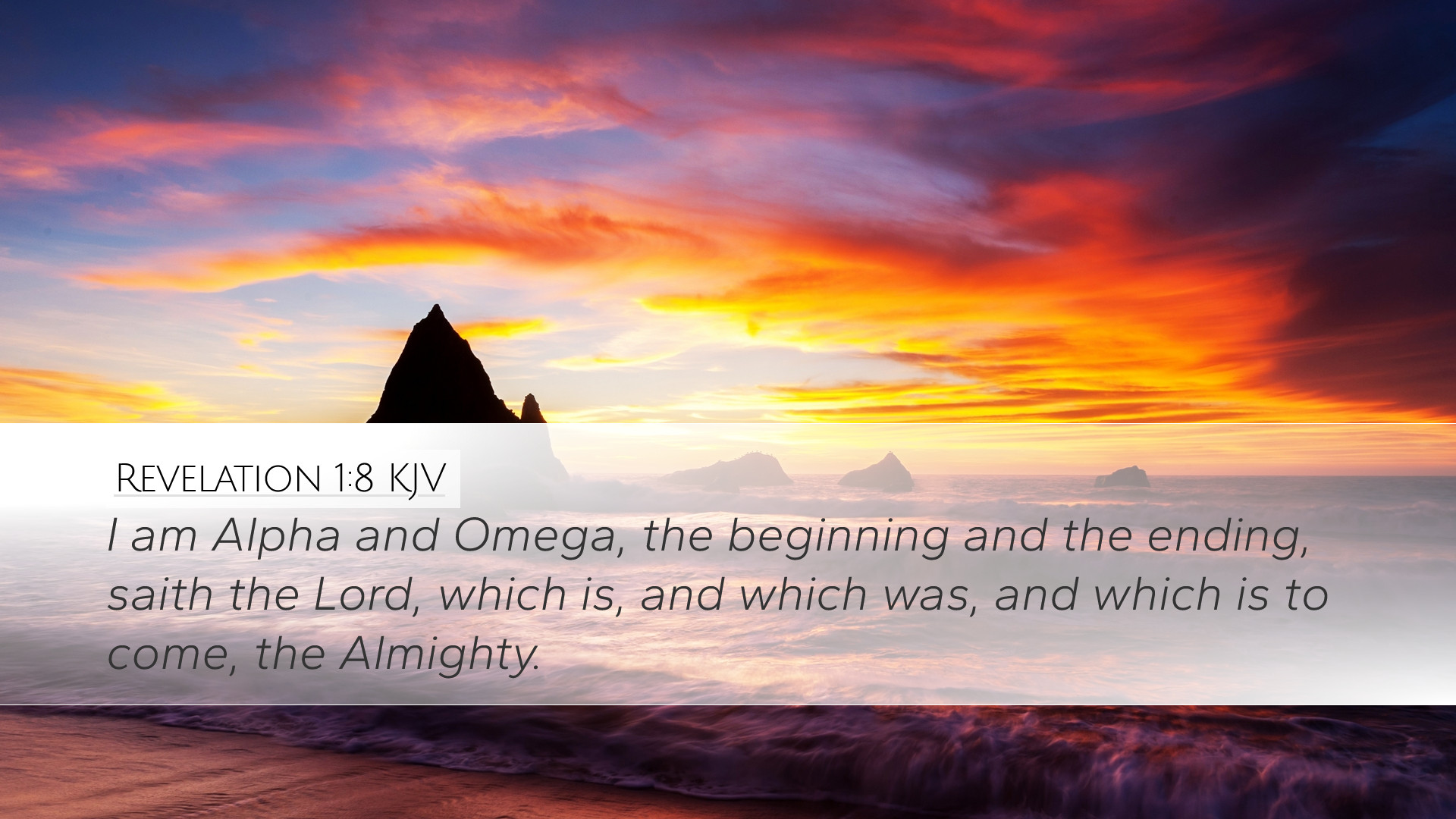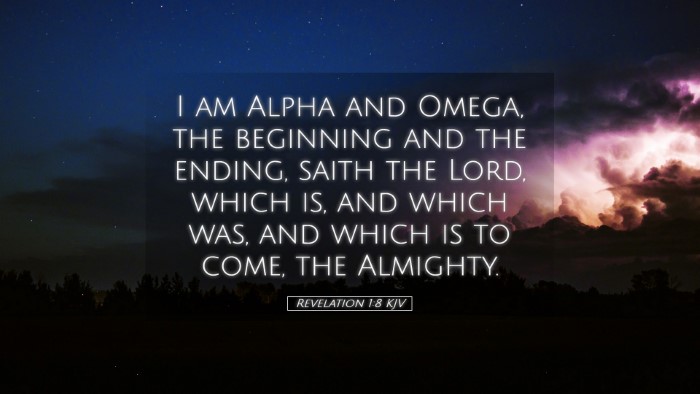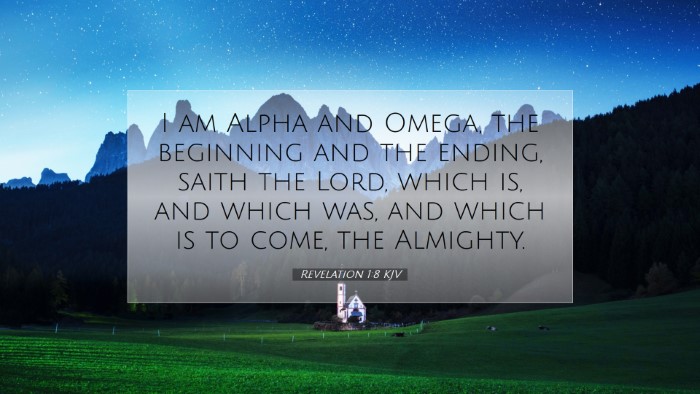Commentary on Revelation 1:8
Bible Verse: Revelation 1:8 (KJV) - "I am Alpha and Omega, the beginning and the ending, saith the Lord, which is, and which was, and which is to come, the Almighty."
Introduction
The verse Revelation 1:8 stands as a profound declaration of God's eternal nature and sovereignty. It captures the essence of God's identity as the beginning and the end of all things, inviting a deep reflection on His omnipotence and omnipresence. This commentary explores the insights offered by notable theologians such as Matthew Henry, Albert Barnes, and Adam Clarke, providing a robust understanding geared towards pastors, students, and scholars of the Scriptures.
Exegesis and Insights
The Eternality of God
This verse asserts the eternal nature of God. According to Matthew Henry, God's declaration of being the "Alpha and Omega" denotes that He is the source and conclusion of all existence. The terms "Alpha" and "Omega," the first and last letters of the Greek alphabet, symbolize that everything begins with Him and everything culminates in Him.
God’s Sovereign Authority
Albert Barnes emphasizes that the title "the Almighty" signifies God's supreme power over all creation. He argues that this title is a reminder to believers of God's ultimate authority, capable of fulfilling His promises and executing His will. This assurance is central in encouraging faith among believers facing persecution and trials.
Lessons for Believers
The understanding of God's authority encourages believers to trust in His control over their lives and circumstances. This spiritual assurance is precious, particularly in uncertain times, as believers can rest in the knowledge that God encompasses their beginning and end.
God's Presence Across Time
The phrase "which is, and which was, and which is to come" highlights God's continuous interaction with humanity throughout history. Adam Clarke notes that this affirmation showcases God's unchanging nature amidst the changing times. It serves as a reminder that while the world evolves, God remains consistent in His character and promises.
Theological Implications
Clarke further explains that God's existence outside of time indicates that He is not bound by temporal limitations. This aspect of God provides comfort to believers, assuring them that their lives are under the watchful care of an eternal being. This understanding is crucial for appreciating God's providential role in human affairs.
Application in Pastoral Ministry
For pastors and leaders, this verse provides foundational truths for teaching and counseling. The eternal nature and authority of God can encourage congregations to place their trust in His overarching plan. The acknowledgment of God as both the beginning and the end can lead to fruitful discipleship where believers are taught to view their lives through an eternal lens.
- Encouragement in Difficulty: Remind believers that God’s power supersedes their trials.
- Hope for the Future: Teach on the certainty of God’s promises and eternal life through Christ.
- Worship and Reverence: Foster an environment of worship that reflects God's majesty as the Almighty.
Conclusion
Revelation 1:8 encapsulates key theological concepts essential for understanding God's nature and His relationship to time and creation. The insights from Henry, Barnes, and Clarke contribute to a deeper appreciation of God as the eternal Sovereign who faithfully interacts with His creation. This understanding is pivotal for believers as they navigate their faith journeys with a profound recognition of God's character.


